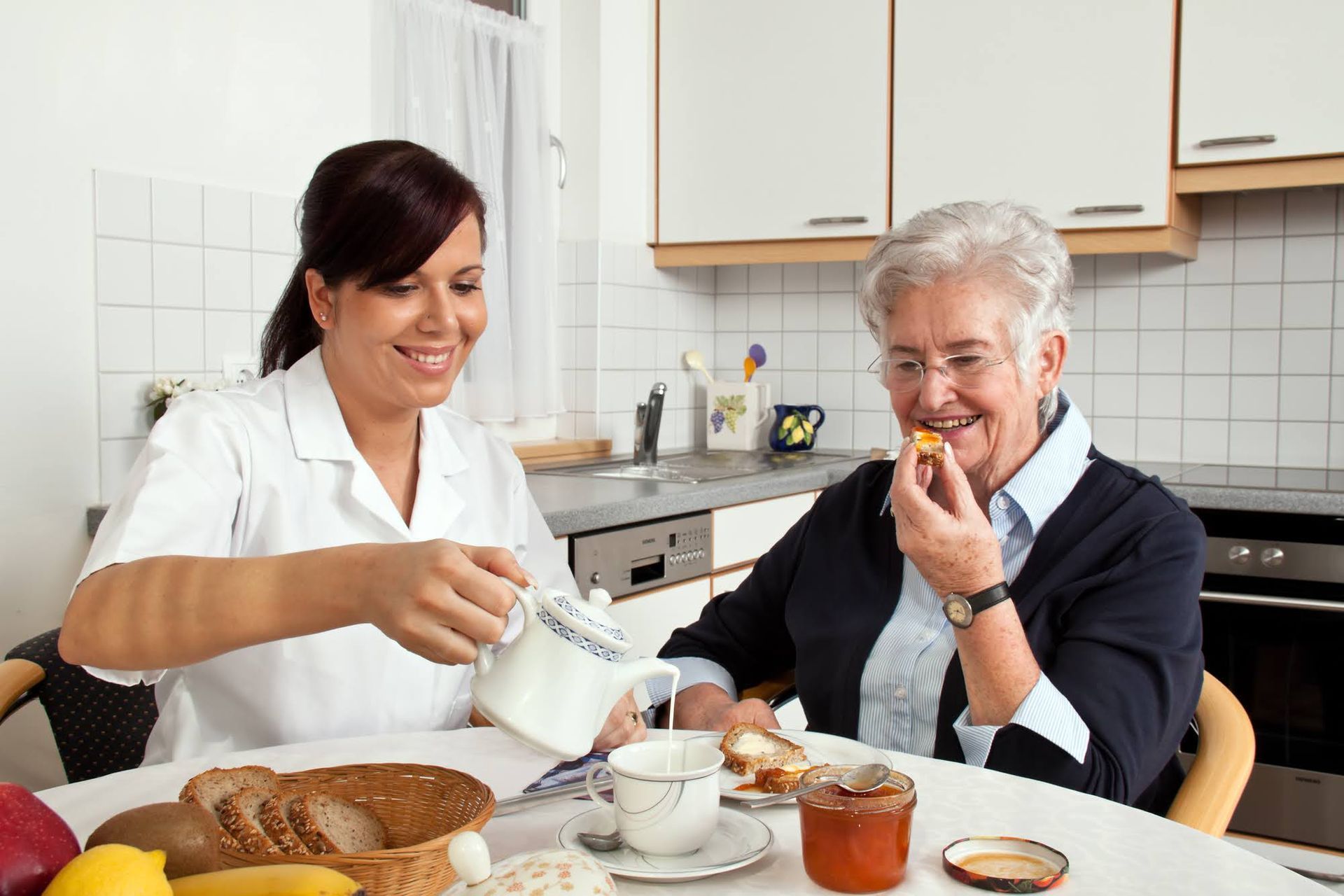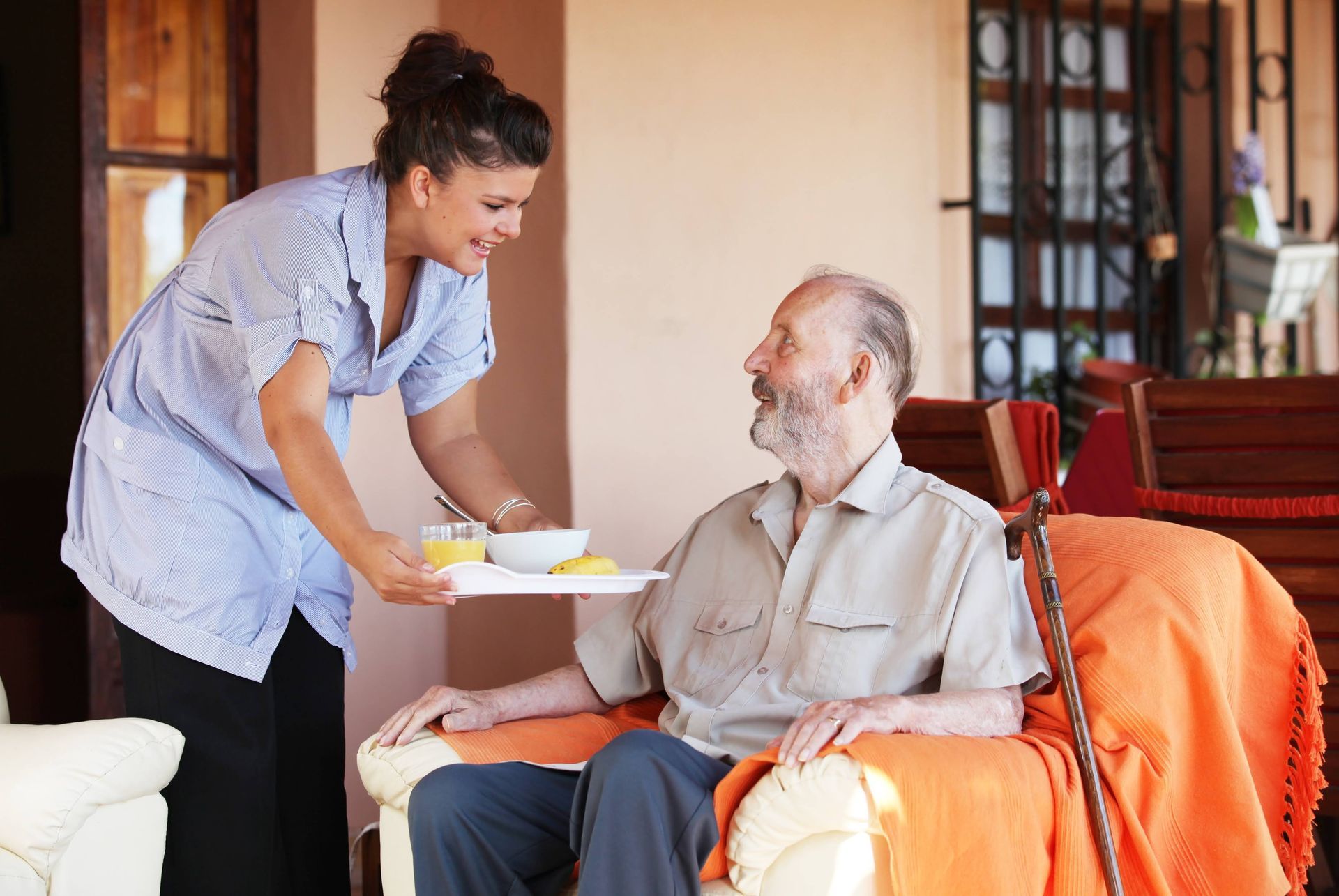Need Help? Call Us at
Give Them the Care They Need: How to Prepare for Your Loved One's At-Home Care
This is a subtitle for your new post
If your loved one is ready for at-home care, it's time to make plans. There are some steps you'll need to take when your loved one needs at-home care. These steps can help ease the transition into at-home care. Here are six steps to take now that it's time to arrange at-home care for your loved one.
Understand the Available Services
If your loved one is ready for home care, now's the time to educate yourself. There are a lot of options to consider when arranging home care for your loved one. That's especially true where at-home services are concerned.
Some services include meal preparation, personal hygiene assistance, and medication management. You can also arrange specialized medical services for your loved one. Understanding the available services will help you choose the ones that are right for your loved one.
Assess Your Home Environment
If you're going to start at-home care for your loved one, start by taking a look around the house. Take some time to assess your loved one's home environment. This will give you a chance to make the necessary modifications.
You may need to make changes to ensure your loved one's safety and comfort. Start by removing potential hazards like loose rugs and cluttered pathways. You should also install handrails or grab bars where needed, especially in the bathroom areas.
Handrails and grab bars can prevent accidents and injuries. You'll also need to make sure that your loved one's home is accessible to mobility devices like walkers, wheelchairs, and scooters.
Ensure Open Communication
Transitioning to at-home care can create anxiety for your loved one, especially if they're not ready for the change. Open communication can help alleviate anxiety. When you're talking to your loved one, be sure to discuss their concerns, and expectations about their care. It's also important that you involve them in the decision-making as much as possible. This will ensure that they feel heard and respected. This will help your loved one maintain their dignity and independence throughout the caregiving process.
Create an Effective Care Plan
When it comes to arranging at-home care for your loved one, it's important to focus on their needs. One way to do that is to collaborate with their healthcare professionals and caregivers. Collaboration can help you create a comprehensive and effective care plan that's tailored to your loved one's needs.
Your loved one's at-home care plan should include details about their medical conditions, medications, and dietary requirements. It should also include any other specific care instructions for your loved one's care. It's also a good idea to revisit the care plan from time to time. This ensures that the care plan remains up-to-date.
Establish a Support Network
Caring for a loved one who needs at-home care can be physically and emotionally demanding. You can relieve some of the distress by establishing a support network of family and friends, who can provide assistance or relief when needed. Having a network in place will help you avoid caregiver burnout. A support network can also ensure that your loved one receives consistent care and support.
Prepare for Emergencies
If your loved one is ready for at-home care, consider those unexpected events. That includes emergency situations. That's where an emergency plan becomes beneficial. Create an emergency contact list with names and phone numbers of healthcare providers, emergency services, and family members. The plan should also include essential medical information, such as allergies, medications, and medical history for your loved one.
Now that your loved one needs at-home care, give us a call. At Sunrise Home Care, we're here to provide for your loved one's home care needs.
We acknowledge the Worimi people, Traditional custodians of the land on which we live and work today.
We pay our respects to Elders past, present and emerging.
We celebrate the stories, culture and traditions of Aboriginal and Torres Strait Islander Elders of all communites who also work and live on this land.
© Copyright 2022 | All Rights Reserved | Sunrise Homecare | Web Design by ACM Digital | Privacy Policy














